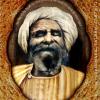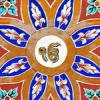Search the Community
Showing results for tags 'tolerance'.
-
WJKK WJKF I have been doing some comparative reading across some of the major religions - and other than Hindu Yogic schools (get to that in a moment) - Sikhi alone stands unique in its tolerance and acceptance and indeed protection for any and all to have religious freedom. While historically there is the example of Guru Tegh Bahadur - ji, the modern example is that of the Sikh Coalition fighting alongside jews and others that are being oppressed. The Gurbani from "Koi bol-ay ram ram" to "Jineh toh-ay dhiya-yo tineh" also backs this up with no two ways about it. But somehow those who choose not to believe in the Divine at all - are criticized somewhat harshly. "Jo sir saa-ee na niv-ae so sir kup utaar" In the Hindu Samkhya school of thought - there is emphasis on praman shaabad and anu-maan - there is a lot of appealing to reason and inference and the premise of Devta or even Ishta Devta is not given a lot of importance. In fact some of those from outside that have studied it - say that it gets as close to an atheist belief as one can. I was just wondering if any one from the saadh sangat had insight.
-
As per this link by veer Singh559 , people who speak against dasam deserve to to be shot dead ? Guru sahib will be very happy with such talibanised 'sikhs' ? Had these goons attacked someone like dhunda or panthpreet singh, people here will be cheering and doing jakare ? Remember Aurangzeb ? He persecuted people for their beliefs and remember Guru Tegh bahadur - who stood up for their rights even though his own views were materially different from the hindus . In Gurmat voilence is permitted only to prevent further voilence , e.g taking out indra or Beanta was ok . Update 9pm 21.05.16 | "ਮੇਰੀ ਕੋਈ ਦਸਮ ਗ੍ਰਥ ਦੇ ਵਿਰੁੱਧ Statement ਦਿਖਾਓ" | DHADRIANWALE So by this token , people who speak against dasam need to to be shot dead ? Guru sahib will be very happy with such 'sikhs' ? What's the difference between us and taliban ? Had these goons attacked someone like dhunda or panthpreet singh, people here will be cheering and doing jakare ? Remember Aurangzeb ? He persecuted people for their beliefs and remember Guru Tegh bahadur - who stood up for their rights even though his own views were materially different from the hindus . In Gurmat voilence is permitted only to prevent further voilence , e.g taking out indra or Beanta.
-
Waheguru Ji Ka Khalsa, Waheguru Ji Ki Fateh, A lot of modern Sikhs are very quick to extol their opinions that Sikhism equates all the major religions of the world to rivers flowing into a single ocean: http://en.wikipedia.org/wiki/Universalism#Sikhism In other words all religions, when properly followed, can lead one to God. Aside from this metaphor being nauseating for its sentimentality, the idea that two faiths with completely different and usually contradictory precepts can both yield the same spiritual pay dirt strikes me as being utterly fanciful. It also betrays an ignorance of the religions with which Sikhi is being equated. Take Muhammad, as an instance of a prophet from another religion. Some members of our Panth consider that both the Prophet of Islam and our own Gurus were all sent by the same God in order to enlighten the masses, that both these parties are composed of the messengers of God. However it is made explicitly clear in the Quran, which was supposedly revealed to Muhammad by Allah himself, that he would be the very last prophet in history to the exclusion of all others that came after him. This includes our own Guru Sahibaan: "Muhammad is... the Apostle of God, and the Seal of the Prophets (The Quran, Surah 33:40). As a "seal" closes a letter, so does Muhammad close the line of prophethood. Therefore if we accept Muhammad as a prophet we must by definition accept his revelation (all of which came directly from Allah through the supposed intercession of the Angel Gabriel), and in lending any credence to the idea that he is the last messenger of God, we are in effect denouncing our own Guru Sahibaan as pretenders. We cannot possibly believe in both the Gurus and Muhammad. Either Muhammad was right and our Gurus were liars, or our Gurus are right and Muhammad was a liar. I very much doubt that any of us inclines towards the former. Secondly, how can it be argued that both Islam and Sikhi both lead to salvation when the two of them advocate completely different and antithetical ways of attaining it? In Sikhism, as the members of the Sangat here will well know, one is instructed that rituals such as fasting, pilgrimages, circumcisions are wholly unimportant and of no consequence. One who wishes to attain Mukhta is counselled to avoid these things. But in Islam, fasts, pilgrimages and rituals are of the utmost importance, and are actually said to be necessary if one wishes to go to heaven (two of the so called five pillars of the faith being predicated on ritual). To summarise, is it possible for Muhammad to have been sent by the very same God who sent our own Guru Sahibaan, when the first party's message excludes and contradicts that of the latter?
-
http://www.latimes.com/news/nationworld/world/la-fg-afghanistan-sikhs-20130611,0,1113100.story Afghanistan Sikhs, already marginalized, are pushed to the brink Widespread discrimination has prompted many Afghan Sikhs to flee, greatly diminishing their number. Those who remain fear their community may vanish altogether. Decades of war, instability and intolerance in Afghanistan have fueled waves of Sikh emigration, reducing the community to just 372 families nationwide, says Awtar Singh Khalsa, right, association president of the Karte Parwan temple in Kabul. (Carolyn Cole, Los Angeles Times / April 25, 2013) KABUL, Afghanistan — Outsiders may have trouble distinguishing between the turbans worn by Afghan Sikhs, with their tighter folds, varied colors and tucked-in edges, and those worn by Afghan Muslims, usually black or white with the end hanging down the wearer's back. The subtle differences, however, and what they represent, have fueled widespread discrimination against Afghan Sikhs, members of the community say, prompting many to move away amid concern that the once-vibrant group could disappear. "For anyone who understands the differences in turbans, we really stand out," said Daya Singh Anjaan, 49, an Afghan Sikh who fled the capital, Kabul, for India after seeing his Sikh neighbors slain. "I'm sure the remaining Afghan Sikhs will vanish soon. Survival's becoming impossible." There are no exact records on when Sikhs, a 500-year-old monotheistic people from western India and modern-dayPakistan, arrived in Afghanistan, although most accounts place it around 200 years ago. Mostly traders, they prospered and numbered about 50,000 by the early 1990s, concentrated in Jalalabad, Kabul, Kandahar and Ghazni. But decades of war, instability and intolerance have fueled waves of emigration, reducing the community to just 372 families nationwide, said Awtar Singh Khalsa, association president of the Karte Parwan gurdwara, or temple. This is the last of eight gurdwaras that once operated in Kabul, he said. During the Afghan civil war of the mid-1990s, most of Kabul's solidly constructed gurdwaras were appropriated by battling warlords who shelled one another, destroying seven of them along with a Sikh school that once taught 1,000 students. Under Taliban rule, Sikhs had to wear yellow patches, reminiscent of the Jews under Nazi rule, and fly yellow flags over their homes and shops. Among the goals laid out by the United States and its allies after toppling the Taliban government in 2001 was religious tolerance for minorities, who account for about 1% of Afghanistan's population. In practice, Sikhs say, Afghan President Hamid Karzai's weak and embattled government rarely counters prejudice by the majority population, which emboldens attackers. Hooligans rob, insult and spit at them on the street, they say, order them to remove their turbans and try to steal their land. Particularly dispiriting, Afghan Sikhs say, are charges by the Muslim majority that they should "go home," even though they've lived in Afghanistan for generations and are protected, at least theoretically, by freedom-of-religion safeguards in the Afghan Constitution. Another disturbing example of the indignities they face is the treatment of their dead, many said. Cremation, a tenet of the Sikh faith, has been quietly practiced in Kabul's eastern district of Qalacha for more than a century. In recent years, however, some Sikhs who have tried to carry out cremations have been beaten up, stoned and otherwise blocked from doing so, at times decried as statue-worshiping infidels whose ceremonies "smell." Islam considers cremation a sacrilege. Many Sikhs said they've complained repeatedly to the government to little avail. "In the last decade, the Kabul government has specified 10 different places for Sikh burials and cremations, but villagers keep giving Sikhs problems," said Anarkali Honaryar, a senator representing the community. "Even when President Karzai issued a decree, nothing changed." While in New Delhi last month, Karzai said that Sikhs are a valued part of Afghanistan and that he was sorry so many had left. "We'll do our best to bring the Sikh community and Hindus back to Afghanistan," he said. Sikhs, Jews and other minorities enjoyed tolerance and relative prosperity until the late 1970s when decades of war, oppression and infighting set in. Although many Muslim families have also suffered hugely, Sikhs say they've faced worse pressures as a minority subject to forced religious conversions and frequent kidnapping, given their limited political protection and reputation for being prosperous. Pritpal Singh, an Afghan-born Sikh living in England who has documented the plight of Afghan Sikhs, said his brother was kidnapped shortly before the family left in 1992. "I really looked up to him; it was such a shock," he said. "They asked for crazy money and we couldn't pay, so they killed him." As conditions worsened, Sikhs turned increasingly inward, building a high wall around the lastgurdwara to prevent passersby from stoning the building, and cremating their dead inside, normally unthinkable, to stem angry mobs. Khalsa said he's met repeatedly with Karzai but nothing changes, and meetings with bureaucrats and politicians often end with demands for money. "Corruption is unbelievable," Khalsa said. "The Taliban were far better than this government." For those emigrating, India and Pakistan visas are much easier to secure than those to Europe, so some stop there first, then travel illegally to the West. Although securing a short-term visitor visa to India is relatively easy, obtaining citizenship is a "nightmare" given India's bureaucracy and general indifference, said Paramjit Singh Sarna, anIndian community leader in New Delhi assisting Afghan Sikhs. It does not help that Sikhism originated in India and that Indian Prime Minister Manmohan Singh is a Sikh. Sarna said many Afghan Sikhs live in limbo in India. As "outsiders," they are unable to buy land or work, their travel is restricted, their children born stateless. Dhyan Singh, a 62-year-old Afghan Sikh who has lived in New Delhi since 1989, said he misses Afghanistan despite the problems. "Just last night, I dreamed I visited the Kabul gurdwara," Singh said. "It's only fear that keeps me away." mark.magnier@latimes.com Times staff writer Magnier reported from Kabul and New Delhi. Special correspondent Baktash reported from Kabul. Copyright © 2013, Los Angeles Times
- 34 replies
-
- afghanistan
- extremism
-
(and 3 more)
Tagged with:


